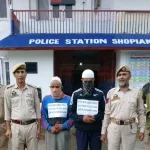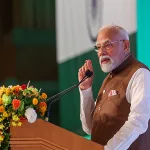The difficulty of ensuring social equality or impartiality in a pluralistic society is one that the governing institutions frequently encounter. There are a number of identities, cultures and communities that make the overall society in any region highly intricate and dynamic. While some identities, cultures and traditions associated with social formations and groups have history with their birth recorded decades or even centuries ago, new formations always take place. It is because the face of the society is constantly evolving. Social fabric in this schema is not permanent. For instance in J&K there are a number of communities and social groups affiliated to unique ethnicity, cultures, traditions and customs. These communities and social groups collectively form the larger social setup – the UT of Jammu and Kashmir. Other than the regional variations, noticeable or unnoticeable, one thing that is easily noted is in terms of numbers or proportion. While the UT’s ethnic composition has predominantly few communities, there are a number of small denominations, sometimes classified under castes and tribes. J&K government is the apex institution of governance in the UT. So while governing, it has to ensure that there is equitable growth and development of all communities and social groups, no matter how small their number is. This axiom in the ordinary sense stands on merits of socialism and secularism, the principles on which the body of laws of a modern state rests. The difference in numbers often leads to intra-conflicts with one community or social group trying to assert while pushing back others. A community with a lesser number (populace), often called a minority community, can become a victim as their representation as well as rights is ignored. Many a time this leads to a communal-tension which hampers not only the growth and development of a particular community but the entire population. This also reflects on the performance of local governments who find themselves more engaged in resolving community conflicts than on pertinent issues which can lead to progress and prosperity. In Jammu and Kashmir there are tribes, castes and other social denominations that existed since ages and continue to exist. Therefore, efforts should be made to sustain the multicultural and multilingual identity of the UT through holistic development of all the communities. Jammu and Kashmir as a unit has preserved distinct cultures and traditions, so should be the case in future as well.
Equitable growth
Sign Up For Daily Newsletter
Be keep up! Get the latest breaking news delivered straight to your inbox.
By signing up, you agree to our Terms of Use and acknowledge the data practices in our Privacy Policy. You may unsubscribe at any time.
Leave a Comment Leave a Comment
Stay Connected
Latest News
Recent Posts
- Habitual Timber Smugglers detained under PSA in Kupwara
- Two theft cases solved in Shopian, 02 accused arrested: Police
- “We have set goal of investment of 10 Trillion Yen from Japan in India in next 10 years:” PM Modi
- Director Health Services Jammu reviews Healthcare services scenario post heavy rains
- India’s exports to surpass last year despite tariffs: Piyush Goyal





